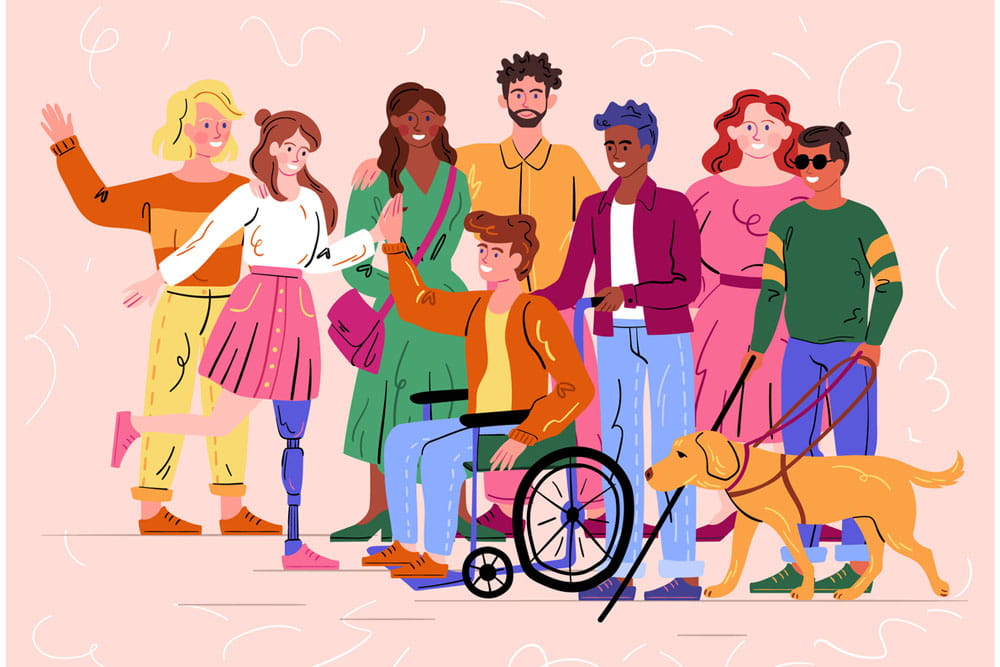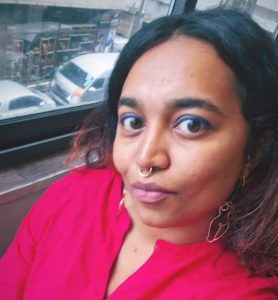Meaningful youth engagement – Walking the walk not just talking the talk
 11 September 2023
11 September 2023

Meaningful youth engagement: walking the walk not just talking the talk. Intersectional SRHR advocacy and gender specialist Srushti Mahamuni reflects on the lessons learnt from program staff perspective for program staff.
‘Youth engagement’, ‘Co-creation’, ‘Youth led advocacy’, ‘youth lie at the heart of what we do’ –are phrases that have become common jargon within the world of development aid cooperation in recent years. However, despite the best of intentions to engage youth in the work that we do (that affects their lives), a lot of our program fail to actually engage young people meaningfully. At best, we ask young people to share their experiences so we can better understand the problems we’re trying to address, at worst we assume that we ‘were young once’ and so we understand the issues these youngsters of today are facing. How often do we ensure that young people as agenda setters, solution – drivers and experts not just of their own experience but also on themes that we are working on? The answer is disappointing.
I wish I could tell you that I found the silver bullet to change this, I can’t. But I would love to share some lessons from The Make Way program, that I am currently working on, that have been steps in the right direction.
-
Budget, budget and budget again
Meaningful youth engagement requires intentionality. And intentionality requires budget. If its not on the budget line it will not show up in your programs. In the Make Way program a sizeable part of our consortium budget goes towards meaningful youth engagement. We have youth panels in every country and at the regional global context that we work in and at the start of each year every consortium partner allocates part of their budget to support youth engagement. This budget is then used to facilitate everything from youth participation at high level UN forums to internet bundles for participation in meetings.
Lesson learnt: If you want to engage, you need to put money on the page.
-
Platform young people in advocacy spaces
Let’s be honest, how often do we give youth from our programs the opportunity to represent us at conferences, high level political forums and other advocacy spaces? Not very often. It’s always directors, senior program staff meeting and greeting and re-meeting and re-greeting year after year at all major conferences. How would these spaces change if we allowed young people to be part of the solutions? How would networks form differently? How would strategies change for the better? We tested this out at Women Deliver – Make Way and consortium partners offered scholarships to 12 youth panel members to attend one the largest multi-sectoral convenings on gender equality in Kigali in July 2023. Our youth panelists facilitated side events and were panelists on concurrent sessions and presented the work we do in Make Way at various spaces. They established themselves as experts on intersectionality, meaningful youth engagement, disability inclusion, economic justice and contributed to co-creating solutions for a better future. Make Way also facilitated the participation of a youth panelist at the High-Level Political Forum 2023 in New York in July and supported a youth panelist to present as key note speaker at the Reproductive Health Network Conference in Kenya.
Lesson learnt: Young people are more than capable of advocating for themselves. Make space, facilitate participation, and let them speak for themselves.
-
Build young people’s skills and capacities for meaningful engagement
Yes, young people are capable of advocating for themselves. Does this mean that they have all the tools to do so? Not necessarily. This is where we, program staff, come in. Advocacy spaces, especially high-level forums can be daunting even when it’s not your first time at the rodeo. How to register, what language and jargon is used in these spaces, how to network with new people – all these questions can be overwhelming for newcomers engaging in these spaces. As program staff, we have the responsibility to make sure that we’re equipping our young colleagues with the skills and know how to successfully interact in these spaces. For example: developing guides on language used in political forums, devising key messages together before-hand, setting a buddy system in place during the conference, debriefing as needed with your youth delegation can be some of the ways in which you can facilitate meaningful participation.
Lesson learnt: Program staff, use your knowledge and experience in these spaces to build capacities of youth where needed.
-
Pay people for their labor (in advance)
How often have we joked that young people can work for free? How often do we assume that we are paying people in ‘resume building experience’ so we don’t need to pay them in money? How often are young people expected to volunteer their time and expertise before they can be paid for it? Way too often. Young people are experts. Pay your experts, otherwise, you’re just exploiting. You can call it what you like, but the bitter truth is, if you would pay a 40-year-old for this labor, you need to pay a 20-year-old for the same labor.
And can we just make it a practice, especially when it involves young people – to make sure to pay them for their participation in advance. We cannot expect 18-year-olds, who have never travelled abroad before, to leave their houses without any idea of when they will be receiving their per diems. And even worse, not receive scholarships until way after the conference. How do we expect people to operate under such stress and meaningfully engage?
Lesson learnt: Pay young people. In advance.
-
Reasonable accommodation and safe spaces
When we talk about youth with compounded vulnerabilities, we need to talk about reasonable accommodation. The key being reasonable. If we want young people with disabilities to participate in our programs, we have to ensure that they have everything they need to participate. How often have we organized webinars (sometimes on the topic of disability inclusion) without any thought of sign language interpretation? How often do we ensure that conferences/workshops/trainings take place in an accessible space? Disability inclusion does not happen as an afterthought. We have to make sure that we do what is needed for people with disabilities to participate meaningfully. If the first thing people have to do is to spend energy and time fighting to be heard or seen in your spaces, how much energy do you think they will actually have left to meaningfully engage? Not much. Don’t know where to start? You can use resources like the Feminist accessibility protocol to learn more on making accessible spaces. During Women Deliver, Make Way facilitated participation for 7 youth with disabilities and ensured that reasonable accommodation in the form of sign language interpretation, transcribers, personal assistants, and English translation was provided as necessary.
Similarly, when you bring youth with compounded vulnerabilities into a space, you have to make sure that you are not retraumatizing them. People questioning their lived experiences, invalidating their expertise, saying things like ‘young people still need to learn’ etc. is not only extremely exhausting for young people but also counter acts any meaningful participation. Whenever possible use skilled facilitators who can center conversations on those most marginalized in these spaces. You can also learn more about feminist facilitation skills and use your positionality and influence as program staff to guide the direction of conversations in way that is respectful and inclusive.
Lesson learnt: Reasonable accommodation takes intentionality. Do the work it takes beforehand and not as an afterthought.
If we want to go beyond a tokenistic way of engaging young people in our work and really care about meaningful youth participation, we program staff have our work cut out for us! But we have the power to influence change in our programs and we should use it.
What have been some of the successes on meaningful youth engagement in your programs?
Share in comments…
See the video the youth panel members of the Make Way program made or see the video on YouTube >>
About the author
 Srushti Mahamuni is an intersectional SRHR advocacy and gender specialist. Over the past 10 years she has worked with INGO’s in Europe, North America, Africa and South Asia. She is passionate about using her positionality to amplify often silenced voices.
Srushti Mahamuni is an intersectional SRHR advocacy and gender specialist. Over the past 10 years she has worked with INGO’s in Europe, North America, Africa and South Asia. She is passionate about using her positionality to amplify often silenced voices.



